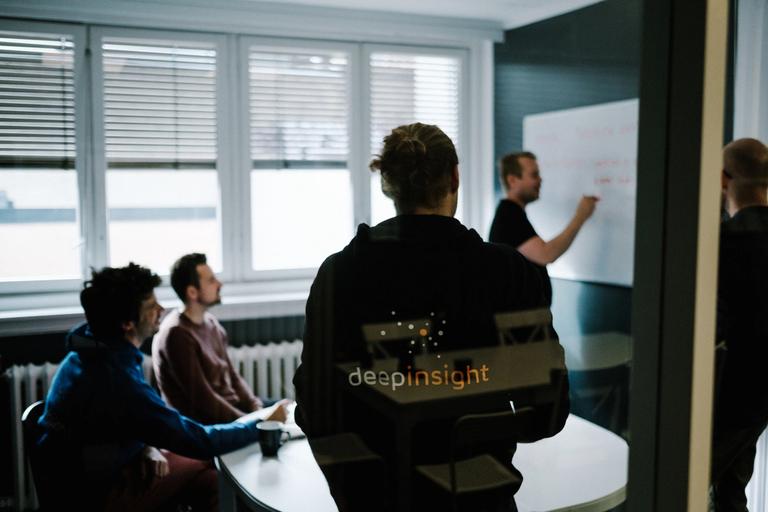Natural Language Processing (NLP) is technology at the intersection of human language and computers. The health sector should use NLP to streamline operations and improve patient care.
NLP technology, or language processing, is a form of machine learning that has been around for decades. The areas of use are many, but in recent times we find examples such as spell check, search engines and automatic loading of documents.
– The potential of NLP, however, extends far beyond that, and especially for the health sector. Despite this, the technology is used to a very limited extent today, says Severin Sjømark, Chief Data Scientist at Deepinsight.
As much as 90 percent of the data in journal systems is text data. NLP technology can process, retrieve and interpret free text, and can be applied for medical records. That way, the process of making diagnoses can be assisted with data, thereby increasing accuracy.

NLP provides great benefits for the entire health sector
NLP provides more than just great advantages through decision support when making diagnoses. Healthcare professionals who work with administrative data can also benefit greatly from NLP technology.
A good example is health secretaries who can spend large parts of the day categorising patients and incidents into essential operational reports. This process can be automated with NLP and save a lot of time for the country's health institutions.
– NLP also plays an important part in anonymizing health data in order to create datasets for research and development of decision support tools. The way this is done is that the NLP technology identifies which personally identifiable data that must be anonymized before further use, explains Hanna Zdanowicz, data scientist at Deepinsight.

The NLP models must be adapted to clinical language
NLP technology consists of a number of data models, with different purposes, that work to process and interpret text data. The models are based on well-known mathematical models, and are trained using machine learning techniques to represent human language in ways that can provide new insights.
Although the benefits are enormous, the use of NLP technology in the Norwegian health sector is unfortunately not as widespread as the possibilities suggest.
There is no universal NLP model that can extract free text from all the world's health systems without adaptation. A lot of the work Deepinsight does during the development of health tools is therefore combining existing models and tools with self-developed tools.
– One challenge is that NLP models are language dependent. Language processing has definitely been developed further in larger languages such as English than it has in Norwegian. This means that we have to spend more time developing our own models. Fortunately, we can draw inspiration from what has been done in other countries, says Sjømark.

– We are still exploring the possibilities of NLP in health tools. We map out the needs of the health sector, and which computer models and software that have already been developed, Zdanowicz explains.
So far, the mapping shows that there are an incredible number of opportunities with NLP for the health sector. On the other hand, something that turns out to be a bigger challenge than first expected is the advanced language the health personnel use in record keeping.
– Doctors use a lot of abbreviations and medical language that are so far from everyday speech that separate NLP models adapted to clinical Norwegian are needed. It is time-consuming work, but Deepinsight has both the competence and the resources to make it happen, Sjømark explains.
A lot will happen in NLP in the coming yearsIn a few years, we will probably see more NLP technology in all sectors. Due to strict safety requirements, challenges with clinical language and tight budgets, the health sector naturally lags a bit behind other sectors when it comes to using NLP technology.
– My prediction is that we will see great progress in NLP with both Norwegian and clinically Norwegian computer models in the coming years, says Sjømark.
– There is so much to be gained from NLP technology. If used in the health sector, it will facilitate both better patient care and health management, Zdonowicz concludes.



